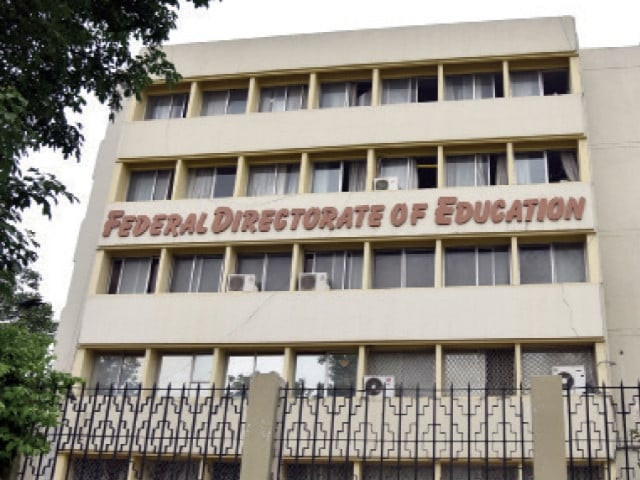Education department mulls rightsizing
As many as 163 seats of EOs and DEOs will be abolished in 41 districts

As part of rationalisation measures, the Punjab Education Department has decided to slash a record number of positions at divisional, district and tehsil levels after the privatisation of government schools. The decision follows a severe economic and financial crisis.
Authorities have initiated a large-scale rationalisation in the education department, which will be completed before the end of summer vacations in 2025.
Of 47,500 government schools throughout the province, 20,000 schools will be closed and handed over to the private sector. A total of 163 seats of Education Officers (EOs) and Deputy Education Officers (DEOs) will be abolished in 41 districts of the province. Teachers who reach the retirement age of 55 years to 60 years will be relieved with a golden handshake.
Preparations to change the entire administrative structure of education in one year have reached its peak. By abolishing the DEO secondary post/office, there will be only two DEOs at the district level – the DEO Males for all male schools and the DEO Females for all girls schools. It has been decided to restore the cluster centres in the education department.
AEO will be regularised on the condition of joining as the SST in high school. There will be only one educational manager instead of two deputies at the tehsil level, under which there will be four EOs from each tehsil and countable AEOs. The new educators' recruitment will be selective and without pension.
On the other hand, teachers' bodies have rejected the new rationalisation policy. Punjab Primary Elementary Secondary Teachers Association president Abdul Rauf Kayani, SES Teachers Association central secretary Muhammad Shafiq Bhalwalia and Punjab Educators Association president Basharat Iqbal Raja are of the view that the government wants to get rid of the education department.
Under the Constitution of Pakistan, the state is bound to provide free education up to Matric, but with the new policy, education will become much more expensive, the dropout of students will increase enormously and unemployment, social crimes, robberies and thefts will be increased enormously, they add.
Box
SSC, HSSC syllabi revised
our correspondent
RAWALPINDI. The Punjab Textbook Board has announced a complete revision of all textbooks for matriculation and intermediate classes.
These changes will take effect from the academic session 2025-26. The curriculum for key subjects in the 9th grade and 1st year of intermediate will be entirely updated, affecting core disciplines that form the foundation of the educational system.
According to sources, nine major subjects in the 9th grade will undergo revision.
These include Urdu, English, Chemistry, Physics, Mathematics, Biology, Computer Science, Islamiat (compulsory), and Pakistan Studies (compulsory). The same subjects for the first-year intermediate classes will also be updated. This marks a significant shift in the content and approach to these subjects, which have remained largely unchanged for years.
Next year's annual matriculation and intermediate examinations, scheduled for 2025, will be the last conducted under the current syllabus. Starting from March 2026, the examinations will follow the new curriculum introduced by the Punjab Curriculum and Textbook Board.
Students, teachers, and educational institutions are gearing up for these changes as they prepare to adapt to the new syllabus.
The District Education Authority (DEA) of Rawalpindi has confirmed that the Secretary of Education, Punjab, has already issued official circulars to all nine educational boards across the province. These circulars, directed to board chairpersons, examination controllers, directors of education, and heads of schools and colleges, outline the upcoming changes and provide guidelines for their implementation.
HIGHLIGHT: These changes will take effect from the academic session 2025-26



















COMMENTS
Comments are moderated and generally will be posted if they are on-topic and not abusive.
For more information, please see our Comments FAQ